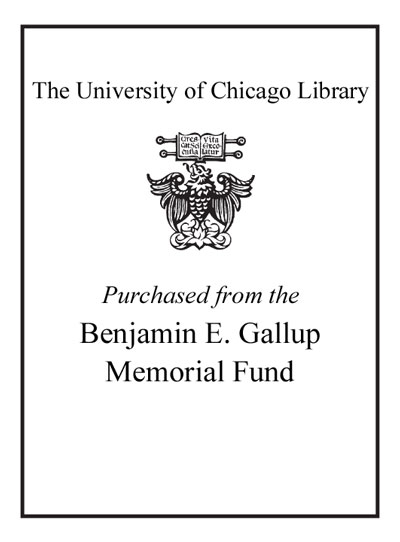Review by Publisher's Weekly Review
The California Gold Rush of 1848-1853 may have led prospectors more often to bankruptcy than to riches, but the lure of gold also provoked an explosion of settlement and economic growth that transformed what had been a sleepy Mexican province into one of the most dynamic and cosmopolitan states of a newly transcontinental Union. Walker (Pacific Destiny), drawing heavily on contemporary accounts, gives a panoramic account of this epic. He describes the gold fever that gripped the country, and the glitter and squalor of boomtown San Francisco and the mining camps. He crafts finely etched portraits of some of the tens of thousands of "Forty-niners" who braved the malarial jungles of Panama, the treacherous sea passage around Cape Horn, or the grueling trek across the Plains and Rockies to seek their fortunes in the gold fields. In California, Walker notes, the gold economy almost overwhelmed the real economy; prices soared and crops went unharvested as farmers left the land, workers left their trades and soldiers deserted their posts to go panning in mountain streams. But by1853, the romance was fading; corporate mining interests were pushing out the prospectors and bringing in industrial hoses capable of blasting away whole hillsides. It's a quintessential American story, and Walker's meticulous research and stylish storytelling bring it vividly to life. (Jan.) (c) Copyright PWxyz, LLC. All rights reserved
(c) Copyright PWxyz, LLC. All rights reserved
Review by Kirkus Book Review
An exploration of the California Gold Rush, which began as a dream, blossomed into rumor, and turned into a transcontinental frenzy. "California was coveted by all who saw it," western historian Walker (Bear Flag Rising, 1999, etc.) writes, not least by the Spanish conquistadors who scoured the Southwest for gold. They didn't turn much up, perhaps for lack of appropriate technology, and their descendants developed an economy based on raising livestock. There was plenty of gold to be had in California, though, in the rich lode that ran nearly the whole length of the Sierra Nevada. The American conquest of California was spurred in part by reports of this treasure, Walker suggests, but the great strike at Sutter's Mill was an international venture from the outset. "Neither the Spaniards nor the Mexicans discovered California gold," he writes, "but a true irony lay in who did discover it: an American working in lands that had been granted by Mexico to a German who had named his domain New Switzerland." That German was John Augustus Sutter, who carved out a little fiefdom for himself from the leftovers of the Spanish and Russian empires. (The guns at his fort, Walker notes, had been thrown down by the retreating Napoleonic army at the gates of Moscow and shipped abroad, a nice bit of recycling.) Though Walker treats Sutter with some sympathy, he acknowledges that the German had a cruel streak and when drunk--which was most of the time--was given to abusing any Indians he happened to meet. Walker's tale takes in a broad range of characters, from well-meaning New England farmers seeking an honest fortune to deserters, bandits, and riffraff from all nations; the narrative is swift and accurate, and the author does a good job of bringing musty historical figures to life. Very capable, though outclassed by H.W. Brands's The Age of Gold (p. 780), which covers the same ground more thoughtfully.
Copyright (c) Kirkus Reviews, used with permission.
Review by Publisher's Weekly Review
Review by Kirkus Book Review

